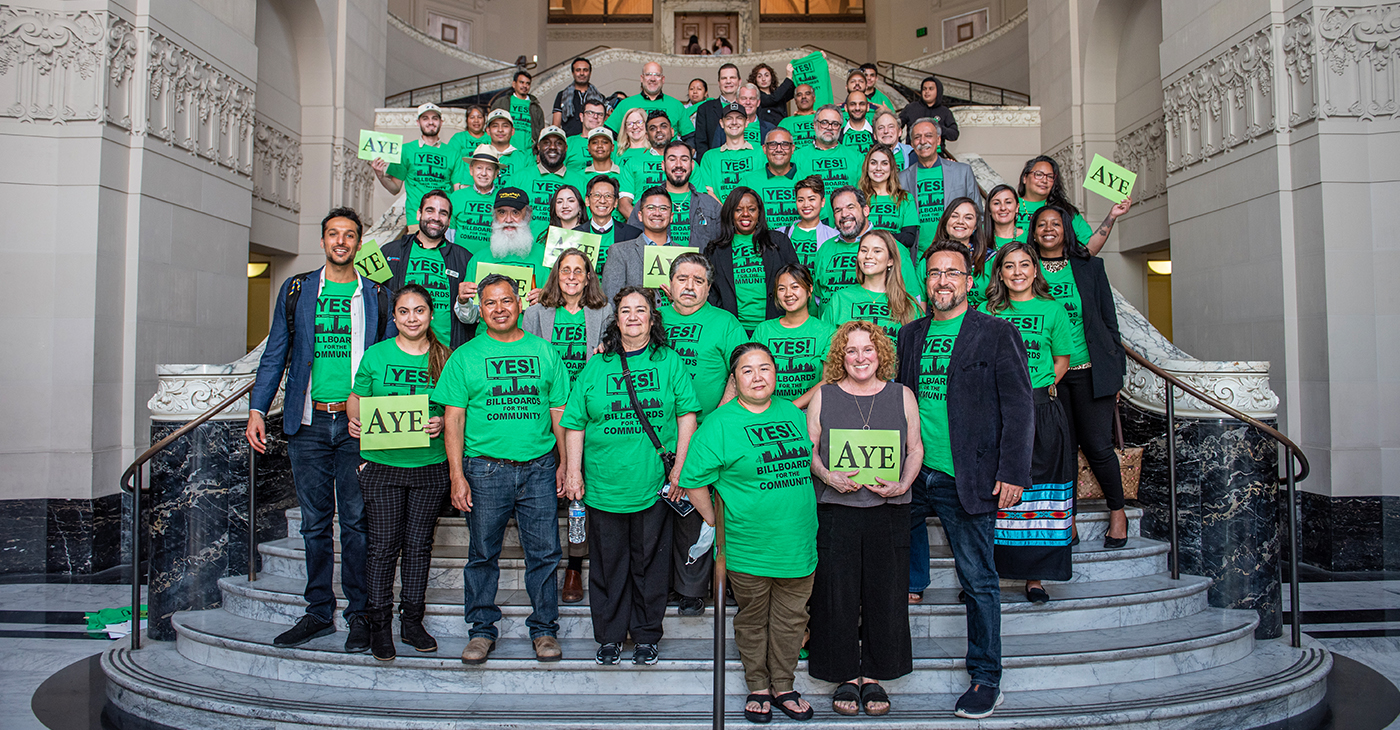Activism
Through Ads and Advocates, Battle Over Calif. Gambling Propositions Heat Up
A statewide survey by the Public Policy Institute of California (PPIC), conducted between Sept. 2 and 11 and released on Sept. 15, revealed that 54% of California voters would vote “no” for Prop 27, while 34% would vote “yes.” Twelve percent of the respondents were “unsure.” The survey’s authors wrote that a strong majority of Republicans wouldn’t vote for the proposition, compared to half of Democrats and independents.

By McKenzie Jackson | California Black Media
Clint Thompson, a Santa Monica resident in his 30s, wouldn’t say he has been inundated with advertisements supporting or denigrating Propositions 26 and 27, but he sees an ad focused on one of the legislations each time he turns on his television.
“I usually watch the news during the day — NBC — and on NBC, Prop 26 or Prop 27 comes on every other commercial break per show,” said Thompson, an actor, who admitted he hasn’t researched the sports gambling propositions. “Both of the props seem to have good things with them. The commercials seem to have reasons why you should say ‘yes,’ or ‘no.’”
Prop 26 would legalize roulette, dice games, and sports betting on Native American tribal lands if approved by voters in the Nov. 8 election. It is backed by over 50 state Native American tribes.
Prop 27, supported by sportsbooks DraftKings, FanDuel, BetMGM, Fanatics, PENN Entertainment, and WynnBet, would give those sports betting companies the reins in sports gambling in the Golden State and allow online gambling.
If people like Thompson feel the advertisements from the campaigns for and against the propositions seem to be flooding the television and radio airwaves — and to be ever-present on social media (Watched a YouTube video lately?) — they might be right.
The dueling propositions have raised a combined $400 million for advertising leading up to Election Day this November. That has led to ads backing and slamming the two propositions to be front and center in all forms of media Californians consume.
Dinah Bachrach of the Racial Justice Allies of Sonoma County, a group supporting Prop 26, said the proliferation of ads supporting Prop 27 is concerning.
“They are all over the place,” Bachrach said. “Gambling is already a pretty big business, but to be able to do sports gambling online is dangerous because it hurts what tribal casinos have been able to do for their communities in the state.”
According to Bachrach, Prop 26 protects the sovereignty of native tribes. “It’s a really important racial justice issue,” she said. “Indian casinos provide a tremendous amount of financial support for the casino tribes and the non-casino tribes, and they contribute a lot locally and to the state.”
Bachrach’s organization is one of several civil rights or African American organizations that have thrown its support behind Prop 26.
Santa Clarita NAACP spokesperson Nati Braunstein said in an email, “The NAACP supports Prop 26, which would legalize retail sports betting at California tribal casinos only and opposes Prop 27 which would allow online sports betting via mobile sportsbooks.”
Kathy Fairbanks, speaking for the Yes on 26/No on 27 coalition, composed of California Indian tribes and tribal organizations, and other partners, said winning the approval of every potential voter, including Black Californians, is their goal.
Yes on 27 – Californians for Solutions to Homelessness, the campaign arm of Prop 27 backers, had not returned California Black Media’s requests for comment for this story as of press time. Prop 27 proponents say in ads and the Yes on 27 website repeats that the initiative would help solve California’s homelessness crisis.
Prop 27 imposes a 10% tax on adjusted gross gaming revenue. Eighty-five percent of the taxes go toward fighting California’s homeless and mental health challenges. Non-gaming tribes get the remaining 15% of tax revenue.
Organizations such as Bay Area Community Services, Sacramento Regional Coalition to End Homelessness, San Diego Regional Task Force on Homelessness, and individuals including Long Beach Mayor Robert Garcia, Oakland Mayor Libby Schaaf, Bay Area Community Services CEO Jamie Almanza, and Middletown Rancheria of Pomo Indians Chairman Jose “Moke” Simon are listed as Prop 27 supporters on the Yes on 27 website.
On the campaign’s Facebook page, commenter Brandon Gran wrote under an advertisement photo that voting for Prop 27 was a “no brainer.”
“People are already gambling using offshore accounts,” he typed. “Why not allow CA to get a piece of the pie … money that will (hopefully) go to good use.”
However, a statewide survey by the Public Policy Institute of California (PPIC), conducted between Sept. 2 and 11 and released on Sept. 15, revealed that 54% of California voters would vote “no” for Prop 27, while 34% would vote “yes.” Twelve percent of the respondents were “unsure.”
The survey’s authors wrote that a strong majority of Republicans wouldn’t vote for the proposition, compared to half of Democrats and independents.
“Regionally, majorities in the Inland Empire, Orange/San Diego, and the San Francisco Bay Area would vote ‘no,’ while likely voters in the Central Valley and Los Angeles are divided,” they wrote. “At least half across most demographic groups would vote ‘no.’ Likely voters age 18 to 44 (52%) and renters (51%) are the only two demographic groups with a slim majority voting ‘yes.’”
The survey, titled “PPIC Statewide Survey: Californians and Their Government,” did not ask participants about Prop 26. The Yes on 26/No on 27 coalition, said in a news release that the PPIC’s research confirmed what Prop 26 supporters have said for some time.
“Despite raising more than $160 million for a deceptive advertising campaign, California voters are clearly not buying what the out-of-state online gambling corporations behind Prop 27 are selling,” the statement read.
Activism
Oakland Post: Week of July 24 – 30, 2024
The printed Weekly Edition of the Oakland Post: Week of July 24 – 30, 2024

To enlarge your view of this issue, use the slider, magnifying glass icon or full page icon in the lower right corner of the browser window. ![]()
Activism
Oakland Post: Week of July 17 -23, 2024
The printed Weekly Edition of the Oakland Post: Week of July 17 -23, 2024

To enlarge your view of this issue, use the slider, magnifying glass icon or full page icon in the lower right corner of the browser window. ![]()
Activism
Community Celebrates Historic Oakland Billboard Agreements
We, the Oakland Billboard Economic Development Coalition, which includes Oakland’s six leading community health clinics, all ethnic chambers of commerce, and top community-based economic development organizations – celebrate the historic billboard agreements approved last year by the Oakland City Council. We have fought for this opportunity against the billboard monopoly, against Clear Channel, for five years. The agreements approved by Council set the bar for community benefits – nearly $70 Million over their lifetime, more than 23 times the total paid by all previous Clear Channel relocation agreements in Oakland combined.

Grand Jury Report Incorrect – Council & Community Benefit
We, the Oakland Billboard Economic Development Coalition, which includes Oakland’s six leading community health clinics, all ethnic chambers of commerce, and top community-based economic development organizations – celebrate the historic billboard agreements approved last year by the Oakland City Council. We have fought for this opportunity against the billboard monopoly, against Clear Channel, for five years. The agreements approved by Council set the bar for community benefits – nearly $70 Million over their lifetime, more than 23 times the total paid by all previous Clear Channel relocation agreements in Oakland combined.
Unfortunately, a recent flawed Grand Jury report got it wrong, so we feel compelled to correct the record:
- Regarding the claim that the decision was made hastily, the report itself belies that claim. The process was five years in the making, with two and a half years from the first City Council hearing to the final vote. Along the way, as the report describes, there were multiple Planning Commission hearings, public stakeholder outreach meetings, a Council Committee meeting, and then a vote by the full Council. Not only was this not hasty, it had far more scrutiny than any of the previous relocation agreements approved by the City with Clear Channel, all of which provide 1/23 of the benefits of the Becker/OFI agreements approved by the Council.
- More importantly, the agreements will actually bring millions to the City and community, nearly $70M to be exact, 23 times the previous Clear Channel relocation agreements combined. They certainly will not cost the city money, especially since nothing would have been on the table at all if our Coalition had not been fighting for it. Right before the decisive City Council Committee hearing, in the final weeks before the full Council vote, there was a hastily submitted last-minute “proposal” by Clear Channel that was debunked as based on non-legal and non-economically viable sites, and relying entirely on the endorsement of a consultant that boasts Clear Channel as their biggest client and whose decisions map to Clear Channel’s monopolistic interests all over the country. Some City staff believed these unrealistic numbers based on false premises, and, since they only interviewed City staff, the Grand Jury report reiterated this misinformation, but it was just part of Clear Channel’s tried and true monopolistic practices of seeking to derail agreements that actually set the new standard for billboard community benefits. Furthermore, our proposals are not mutually exclusive – if Clear Channel’s proposal was real, why had they not brought it forward previously? Why have they not brought it forward since? Because it was not a real proposal – it was nothing but smoke and mirrors, as the Clear Channel’s former Vice President stated publicly at Council.
Speaking on behalf of the community health clinics that are the primary beneficiaries of the billboard funding, La Clinica de la Raza CEO Jane Garcia, states: “In this case, the City Council did the right thing – listening to the community that fought for five years to create this opportunity that is offering the City and community more than twenty times what previous billboard relocation agreements have offered.”
Oakland Billboard Economic Development Coalition
| Native American Health Center | La Clínica de la Raza | West Oakland Health Center |
| Asian Health Services | Oakland LGBTQ Center | Roots Community Health Center |
| The Unity Council | Black Cultural Zone | Visit Oakland |
| Oakland African American Chamber of Commerce | Oakland Chinatown Chamber of Commerce | Oakland Vietnamese Chamber of Commerce |
| Oakland Latino Chamber of Commerce | Building Trades of Alameda County | (partial list) |
-

 Arts and Culture3 weeks ago
Arts and Culture3 weeks agoRooted in Tradition: The Intricate History of Black Hair Braiding
-

 Bay Area4 weeks ago
Bay Area4 weeks ago“I Will Not Be Bullied,” Says Oakland Mayor Sheng Thao
-

 Bay Area2 weeks ago
Bay Area2 weeks agoPG&E Increases Rates While Bay Area Households Are Struggling to Stay Afloat
-

 Business3 weeks ago
Business3 weeks agoGov Newsom: Raising Fast Food Minimum Wage to $20 Pays Off as Jobs Multiply in Industry
-

 Activism4 weeks ago
Activism4 weeks agoOpponents of Mayor Sheng Thao Are Calling on Her to Resign Following FBI Raid
-

 Bay Area2 weeks ago
Bay Area2 weeks agoJuneteenth Mass Shooting Suspect Charge with Multiple Counts of Felony Assault by Alameda County DA Pamela Price
-

 Community1 week ago
Community1 week agoHundreds Come to Jehovah’s Witnesses’ Assembly Hall for Three-Day Program of ‘Good News’ in Fremont
-

 Activism4 weeks ago
Activism4 weeks agoOakland Coliseum Sale to AASEG: A Model for Community Development and Inclusion

















































